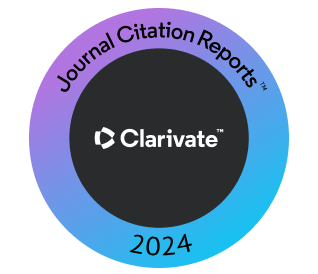
PUBLICATION ETHICS AND MALPRACTICE STATEMENT
ARO Journal is dedicated to upholding the highest standards of publication ethics and ensuring the integrity of the research process. As a peer-reviewed journal, we adhere to the principles outlined in the Code of Conduct and Best-Practice Guidelines for Journal Editors established by the Committee on Publication Ethics (COPE, 2011).
Editors' Duties and Responsibilities
Editors of ARO Journal have a range of duties and responsibilities to ensure the publication process is conducted ethically and transparently. They are committed to maintaining strong relationships with readers, authors, editorial board members, journal owners, and publishers. The editorial and peer review processes are carried out with integrity and fairness, while protecting the confidentiality of individual data.
Key Responsibilities:
- Ethical Research Practices: Encouraging ethical research practices, including studies involving human subjects or animals, and addressing any possible misconduct with appropriate measures.
- Integrity of Academic Record: Ensuring that published articles are accurate, reliable, and supported by sound research methodology. Respecting intellectual property rights and upholding copyright principles.
- Open Debate: Promoting open and constructive debate within the scholarly community, providing a platform for authors to express their ideas and findings.
Authors' Duties and Responsibilities
Authors submitting to ARO Journal are expected to comply with ethical guidelines and guidelines on conflicts of interest.
Key Responsibilities:
- Originality: Declaring that all text, data, figures, tables, or other illustrations in the manuscript are original and properly cited if sourced from other copyrighted materials.
- Rights and Permissions: Affirming that the work does not violate any proprietary or personal rights of others.
Reviewers' Duties and Responsibilities
Reviewers play a crucial role in maintaining the quality of academic research. Their primary responsibility is to provide a thorough and unbiased evaluation of submitted manuscripts.
Core Duties:
- Manuscript Evaluation: Assessing the originality, significance, and contribution of the research, evaluating research methodology and data analysis, determining clarity and coherence of writing.
- Constructive Feedback: Providing specific and detailed comments to improve the manuscript, identifying strengths and weaknesses, suggesting revisions.
- Timeliness and Confidentiality: Submitting reviews within specified timeframes and maintaining the confidentiality of the review process.
- Objectivity: Conducting reviews objectively, free from personal bias, and avoiding conflicts of interest.
Procedures for Handling Complaints and Conflicts of Interest
ARO Journal has established procedures to handle complaints and conflicts of interest promptly and fairly. Any suspected instances of misconduct or breaches of publication ethics are taken seriously and investigated appropriately.
Publisher's Duties and Responsibilities
The ARO journal publisher plays a vital role in disseminating research findings to the broader academic community. Their core responsibilities include:
Core Responsibilities:
- Journal Development and Management: Defining the journal's scope, recruiting and managing editorial boards, overseeing the peer review process, developing journal policies.
- Content Acquisition and Development: Soliciting and evaluating manuscripts, managing editorial workflow, ensuring adherence to ethical guidelines.
- Marketing and Promotion: Increasing the journal's visibility and impact factor, developing promotional strategies, building relationships with libraries and academic institutions.
- Production and Distribution: Overseeing design, layout, printing, and distribution of print and electronic versions of the journal.
- Financial Management: Developing and managing the journal's budget, exploring revenue generation opportunities.
- Technology and Innovation: Implementing digital publishing platforms, staying updated on technological advancements.
Additional Responsibilities:
- Author Services: Providing support and resources to authors.
- Legal and Ethical Compliance: Ensuring compliance with copyright, data privacy, and ethical guidelines.
- Industry Relations: Building relationships with other publishers, societies, and academic organizations.
Commitment to COPE Guidelines
ARO Journal acknowledges the importance of the COPE guidelines in fostering responsible and ethical publishing practices. By adhering to these guidelines, we strive to maintain the trust of our readers, authors, and the wider academic community.
For more information on our publication ethics and publication malpractice policies, please refer to the Code of Conduct and Best-Practice Guidelines for Journal Editors published by the Committee on Publication Ethics (COPE, 2011).
Reference: Committee on Publication Ethics (COPE). (2011, March 7). Code of Conduct and Best-Practice Guidelines for Journal Editors. Retrieved from:
http://publicationethics.org/files/Code_of_conduct_for_journal_editors_Mar11.pdf
Visit our Guide to Authors and Peer Review Process pages for more information.










 ARO Journal is a scientific, peer-reviewed, periodical, and diamond OAJ that has no APC or ASC.
ARO Journal is a scientific, peer-reviewed, periodical, and diamond OAJ that has no APC or ASC.